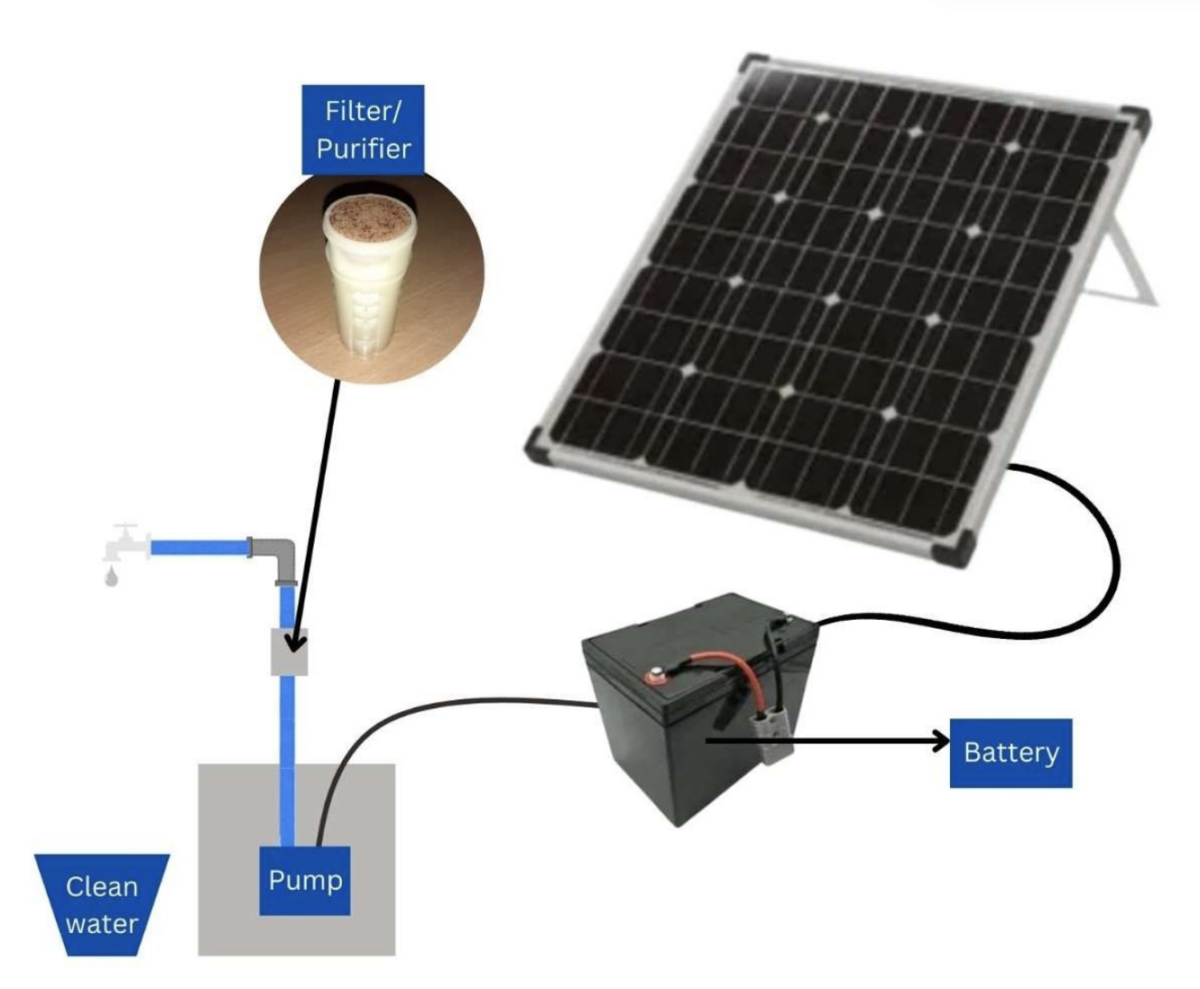From pv magazine France
Kenyan startup Inno Neat has developed a solar-powered water filter that removes contaminants such as bacteria, viruses and heavy metals.
The company claims to have already deployed three prototypes of “SafiSolar” for women’s groups in western Kenya. The units reportedly provide an average of 5,000 liters of drinking water to around 250 homes daily.
“Over the next two to five years, we aim to expand our impact by expanding to more communities in Kenya and beyond. This expansion will be facilitated by strategic partnerships, increased production and continued innovation to make our solution even more efficient and accessible,” said founder and CEO Godfrey Katiambo.
The solution will be billed via a pay-as-you-go (PAYG) system in order to address low-income communities. Indeed, without financial capacity, these households cannot equip themselves with this type of expensive equipment. Inno-Neat intends to bill them on a per-deal basis, monthly or weekly, and via existing PAYG solutions which offer a rental model based essentially on mobile money.
The distribution of the product will be carried out through direct sales and partnerships with community associations, NGOs and local authorities. Inno Neat plans to earn revenue from the sale of SafiSolar systems and replacement filters and estimates recurring revenue potential through ongoing maintenance and ancillary services.
To finance its development, the company hopes to raise $250,000 via a fundraiser that it launched on its website.
This content is protected by copyright and may not be reused. If you want to cooperate with us and would like to reuse some of our content, please contact: editors@pv-magazine.com.




1 comment
By submitting this form you agree to pv magazine using your data for the purposes of publishing your comment.
Your personal data will only be disclosed or otherwise transmitted to third parties for the purposes of spam filtering or if this is necessary for technical maintenance of the website. Any other transfer to third parties will not take place unless this is justified on the basis of applicable data protection regulations or if pv magazine is legally obliged to do so.
You may revoke this consent at any time with effect for the future, in which case your personal data will be deleted immediately. Otherwise, your data will be deleted if pv magazine has processed your request or the purpose of data storage is fulfilled.
Further information on data privacy can be found in our Data Protection Policy.